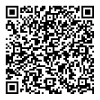1.2.1 Preliminary remarks on the definition of terms
As we have already seen in the first learning unit in the section "Two opposing disciplines", the connection between the two disciplines of ethics and mining has a strong legitimacy. At a very basic level, the focus is on the concept of human dignity as a point of reference for "right" thinking and behaviour. However, not every decision-making situation or action to which one would ascribe an ethical quality has to be argued with such heavyweight concepts as human dignity or human rights.
Just as in the conventional "everday society", there are also numerous situations in the "globalised resource scarce society" in which ethical competence is required in order to avoid simply following a so-called "regulars' morality" or submitting to the opinion of (supposed) majorities. This is to say nothing of the value judgments of populist opinion-makers who serve certain moral concepts and exploit them for their own interests. Topics like resource (in)dependence and scarce resources have become the focus of heated debates. An example is whether the member states of the European Union should mine their own rare earths and become less dependent on the world market or whether they should not press ahead with mining for environmental reasons.

Further reading:
Zimmermann, Antonia (March 15, 2023). (Politico).
Article: Europe’s green dilemma: Mining key minerals without destroying nature.
Reading time 10 minutes
In order to achieve greater clarity in everyday life with its sometimes confusing mix of often contradictory moral values and to strengthen one's own ethical judgement, some key terms and concepts are presented below and differentiated from one another. This scientific sharpening of the relationships provides a terminological toolbox with which one is able to analyse and evaluate situations or upcoming challenges from an ethical point of view, so that one can arrive at the best possible “good” and ethically sound decision.
Bernd G. Lottermoser /
Matthias Schmidt (Ed.)
with contributions of
Anna S. Hüncke, Nina Küpper and Sören E. Schuster
Publisher: UVG-Verlag
Year of first publication: 2024 (Work In Progress)
ISBN: 978-3-948709-26-6
Licence: Ethics in Mining Copyright © 2024 by Bernd G. Lottermoser/Matthias Schmidt is licensed under Attribution-ShareAlike 4.0 International Deed, except where otherwise noted.


Further Informationen:
Project "Ethics in Mining"